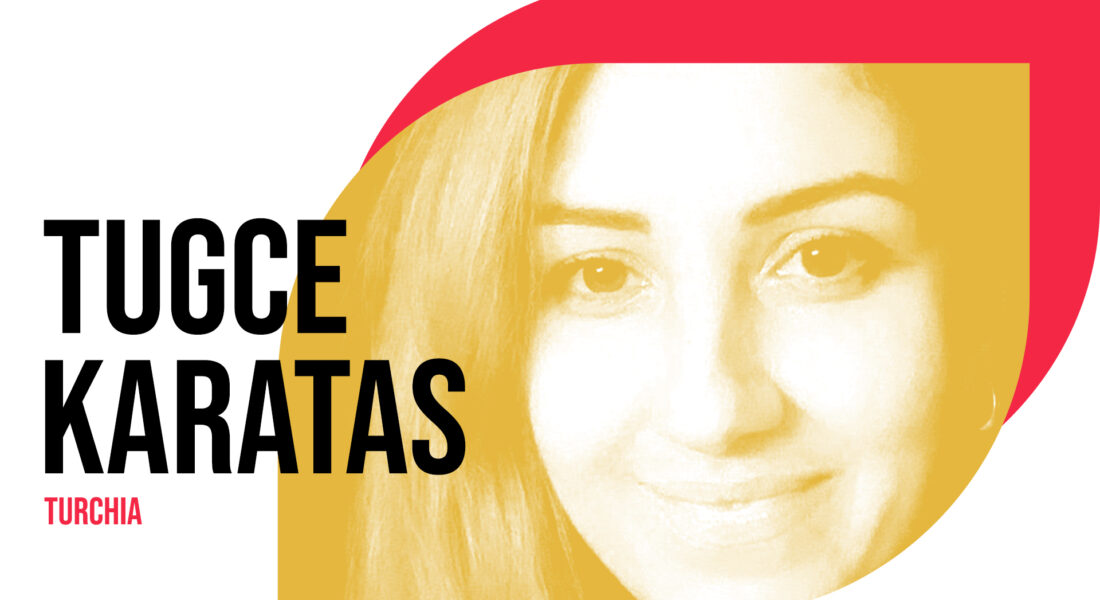
I am trying to learn from the Italians to be slow and quiet and follow a slow lifestyle
Tugce was born in Nazilli, a small town in western Turkey, 33 years ago. She speaks Turkish, English and Italian, some German and is learning French.
She left Turkey ten years ago when she went to study in Portugal, where she graduated in Product Design in 2012. Then, she moved to England, where she earned her master’s degree in Curating Contemporary Design in London. She has been in Italy, in Turin, for four years, after winning a scholarship through the European Union that allowed her to attend a Ph.D. program at the Department of Computer Science at the University of Turin.
“The country itself was never important, I went there where I could study what interested me”.
When she arrived in Italy, she only knew how to say “ciao!” and found it very difficult to integrate, both because of the language, which seemed very difficult for her and because of the pandemic, whose countermeasures hindered human relations. However, she took advantage of this period to improve her knowledge of our language.
In June 2022, he finished his PhD in Computer Science for Cultural Heritage – Digital Technologies for Cultural Heritage Preservation, with a thesis on semantics in archaeology and digital archaeology. “I finished my PhD quickly; I would have liked to learn more”.
Tugce now works for a software company. She cannot tell us much about the world of research in Turkey, having spent very little time there, but she has found that there are good opportunities for study in Turin, although she reports a limited openness to foreigners: “I found it difficult to integrate with fellow students; which is why a project like Migrant Science seems wonderful”.
Tugce believes that she has an interdisciplinary education, which she has also tried to use in the world of work, as “it is in my character to be open to multiple fields and disciplines”. In Turkey, she co-founded a creative collective, consisting of friends and fellow architects and designers, who participate in international design competitions; she also writes articles for magazines, seeking “continuous intellectual exchange”.
The main scientific contribution to our country is her thesis project, which, based on a collaboration between Japan, Italy, Belgium, Portugal and Greece, has resulted in the creation of an archaeology database and the organization in Japan of an exhibition of the results, which in 2023 may come to Italy.
“My scientific contribution is in the very nature of my work in Public Interactions and Public Engagement all aimed at research”.
Her desire for now is to stay in Italy, to improve her language. She feels the Italian culture – which she would like to learn more about – is very close to the Turkish one, “we are both Mediterranean peoples”. People in Italy are lively, not overly sad or hostile, and the only downside is the bureaucracy.
“I am trying to learn from the Italians to be slow and quiet, a slow lifestyle: eat slowly, live slowly (…) in Turkey there is always chaos, we always have something to do and are in a hurry”.
About her country, she misses her family, and friends, but most of all the food: “Here I don’t find Simit, a kind of croissant with sesame to eat for breakfast, at our place we have a hearty, savory breakfast”. In Turkey, hospitality, which is very important for foreigners, comes through good food, which varies depending on the area and climate. From Italy, she would like to import good pizza and wines and spread among her people the habit of doing more outdoor activities in the mountains.


